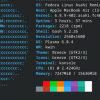Linux to the rescue: A review of three system rescue CDs
We've all had this nightmare. You turn on your functioning Windows/Linux PC, and all you get is a blank screen, or a message telling you that certain files are missing, or the kernel has panicked for some obscure reason. Nothing works, and you need the data on your machine. Yes, now's the time to whip out that trusty backup disk, and heave a sigh of relief that all the important stuff is backed up, right? Well, think again.
Most people do not back up on a daily, or even a weekly basis. Some people do not back up at all. Yes, there are uber-geeks with scripts that back up all their work on an hourly basis to offshore servers, but in a small business scenario, there are times when you have to get data off a computer that has crashed.
Here's where you can use the Source, Luke! The world of open source has many wonderful tools for just such a life-or-death situation. Think of them as paramedics for your computer. While they may not be able to restore your machine to full functionality, they are a quick way of running tests and diagnostics on the disabled machine. In a pinch, you can use them to save important files on a different machine on the network, or burn a CD, before sending the machine off to be fixed.
This article reviews three open source rescue CDs: System Rescue CD, LNX-BBC, and CDlinux. These are all small downloads, ranging from 17 to 110MB, specifically designed to perform system rescue. To test the three, I used a recent AMD Athlon 2400+ machine with 256MB RAM, onboard LAN, and a Nvidia graphics card. The test machine had Windows XP Professional loaded on an NTFS partition on a SATA drive and Centos 4 on an ext3 partition on a PATA drive.









































































